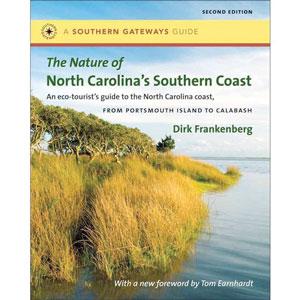 Portsmouth where? Maine? Virginia?
Portsmouth where? Maine? Virginia?
Like many North Carolinians, my friend had not heard of Portsmouth, N.C. He was resisting my push to visit Portsmouth in connection with a planned trip to Ocracoke Island to participate in a program for public school teachers organized by the North Carolina Center for the Advancement of Teaching, known as NCCAT.
Take out a state road map, I said, and look for an island just south of Ocracoke. You will see Portsmouth Island, and on it is marked the town of Portsmouth.
Portsmouth is just a small village with a few old buildings: houses, a store, post office, church, a former lifesaving station and a graveyard.
But no living people.
By the 1970s only three people remained on the island and they are long since gone.
The buildings, maintained by the National Park Service, stand as reminders of what Portsmouth once was: a thriving and important commercial center.
Portsmouth lies to the south of Ocracoke Island, separated by Ocracoke Inlet, which, according to the late Dirk Frankenberg’s recently reissued classic, The Nature of North Carolina’s Southern Coast, is “the only inlet on the Outer Banks that has been open continuously throughout recorded history. It was a major entry into North Carolina’s coastal sound and estuaries in colonial times — first for pirates and smugglers,” including Blackbeard, who was killed at the inlet in 1718. After the Revolutionary War, “the inlet became important as a transshipment site for materials used for developing the land resources of North Carolina and southern Virginia.”
The village, established in the 1750s, Frankenberg wrote, “played a major role in the maritime commerce of North Carolina for the next century.”
Local pilots were necessary to guide ocean-going boats across the shallow inlet. Later, facilities grew up to accommodate the need to transfer goods between larger ocean-going ships and the smaller boats that delivered cargo to local ports near the Pamlico and Albemarle sounds.
Over time a sand build-up made the Ocracoke Inlet more tortuous, and Frankenberg wrote that it was “quickly abandoned for the clearer channels of Hatteras and Oregon Inlets that were opened by the hurricane of 1846.”
My friend agreed to add Portsmouth to our trip. Our three-hour ferry ride from Swan Quarter got us to Ocracoke just in time to join NCCAT leader Alton Ballance and his group of teachers on a boat that gave us a long, cold ride across the inlet to Portsmouth with guide Rudy Austin.
Austin told us about each building and the people who worked and lived there. But other than his voice there was no sound. The eerie quietness surprised and then delighted us.
Ballance told us about once spending the night alone in the deserted village, feeling the spirits of the dead and departed villagers and trying to imagine what they were like and how they lived.
Later I remembered how Michael Parker’s book, The Watery Part of the World, set out a fictionalized version of the last three people who lived on the island. In Parker’s version, university researchers visited a couple of times each year and asked questions about history and life on the island. They recorded the answers and preserved the distinctive way the threesome spoke. Their answers were not always totally honest, and their brogues became more pronounced for the outsiders they called “the Tape Recorders.”
The history lessons and the spur to imagination that came from our visit to Portsmouth make such a trip easy to recommend, notwithstanding the difficulty in getting there.
But, says guide Rudy Austin, be careful about going in the summertime when mosquitoes and other bugs “will eat you alive.”

 How to resolve AdBlock issue?
How to resolve AdBlock issue? 








